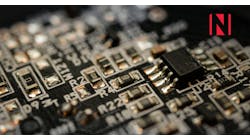Years ago, a buyer at a midsized electronics OEM told me he would rather have root canal surgery than buy components from an independent distributor.
He had several bad experiences with independent distributors. Once, he purchased parts from an independent and the components had solder paste on them. The parts were apparently ripped from printed circuit boards and sold as new. In another case, parts that were shipped by the independent distributor weren't the parts he ordered.
Today, independent distributors are often blamed for introducing counterfeit parts or substandard components that do not meet spec into the electronics supply chain. Counterfeiters apparently sell their bogus products to unscrupulous brokers who then resell them to other brokers and independent distributors, and eventually the fake parts are purchased by buyers at OEMs or electronics manufacturing services providers. The fake parts may not be discovered until they are mounted on a board or when a finished system is tested. The worst-case scenario, of course, is that the counterfeit part is not identified until it causes a system failure in the field.
For years, electronics industry associations and many authorized distributors have admonished buyers to only purchase components directly from manufacturers or from authorized distributors because it was the only way to ensure that purchasers weren't buying counterfeit parts.
Some buyers have taken that advice to heart, but others have ignored it. Some buy occasionally from independent distributors in certain circumstances, such as when parts are in short supply because of high demand or because a natural disaster has knocked out production of needed semiconductors or other components. Other purchasers buy from independent distributors on a regular basis because they often can get a better price for a component from an independent distributor than a franchised distributor.
Some buyers choose to do business with independent distributors they will buy excess inventories of parts. Although the independent distributor may only pay pennies on the dollar for the parts, the buyer’s company is able to take unneeded and unwanted inventory off the books.
Most buyers acknowledge that there is a risk of counterfeit parts when they do business with independent distributors. However, they say the risk can be minimal if a buyer takes the time to research the independent distributor he or she plans to do business with. They point out that not all independent distributors are created equal. While some have sold counterfeit or substandard parts, many carry genuine parts.
Independent distributors acknowledge that counterfeit parts are a real problem in the electronics supply chain and have installed rigorous screening and testing processes to identify fake components. Responsible, reliable independent distributors are able to trace the parts that they sell to the original component manufacturer. In some cases, non-franchised distributors purchase parts directly from a component manufacturer, even without a formal franchise agreement.
In fact, some independents have franchise agreements with some manufacturers. Case in point: America II, an independent distributor in St. Petersburg, Fla., has about two dozen franchise agreements with manufacturers and is adding more.
The key to purchasing from independent distributors is to research and qualify the distributors like any other supplier. Purchasing departments at some large OEMs and EMS providers do this and some have a select few independent distributors on their approved vendor lists. While such companies may buy the bulk of the components that they need for production directly from semiconductor and other component manufacturers, they also purchase some parts from distributors, both authorized and independent, especially if parts are in short supply.
The independent distributors such companies use have been screened and qualified before a purchase order is ever placed to make sure they sell quality products, can trace the parts to the original manufacturer and don’t have a history of selling bogus parts.







